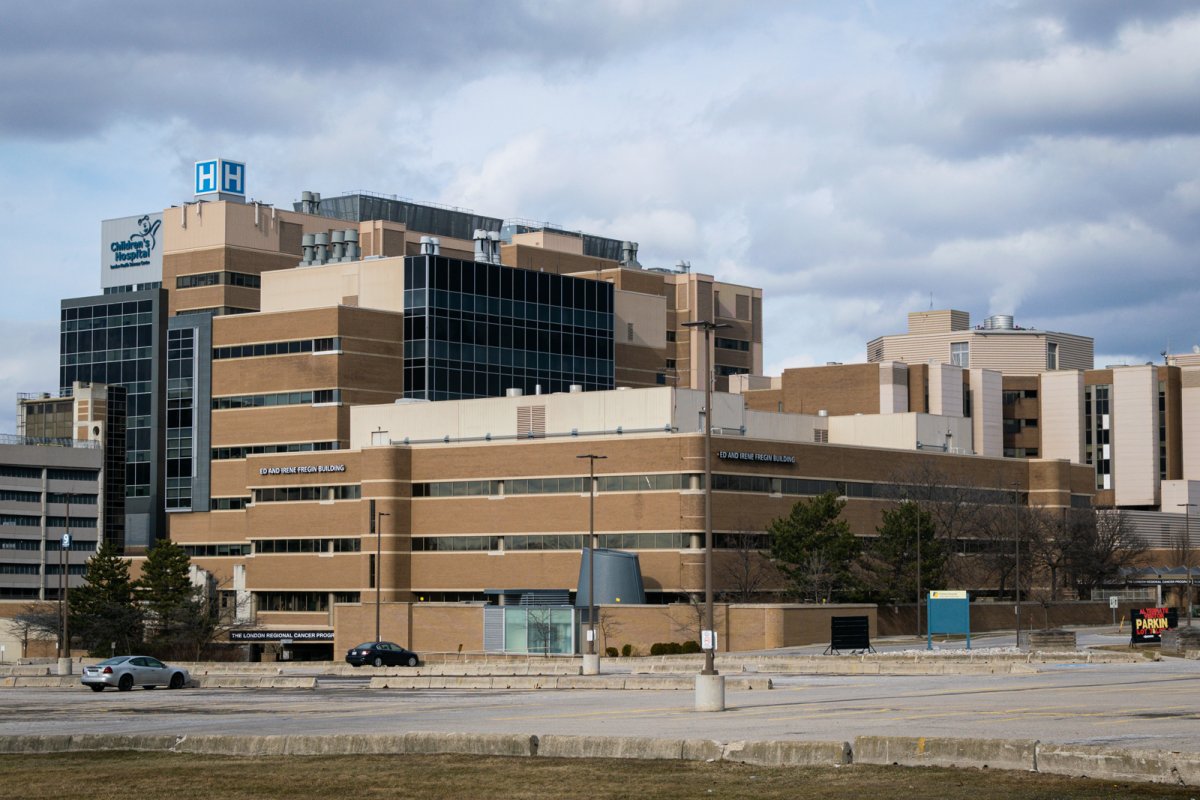The London Health Science Foundation received a $1-million gift to help improve prostate cancer care at the hospital.

The large donation from Lexus of London will go towards supporting the creation and operation of a Cancer Biobank at London Health Sciences Centre (LHSC).
Speaking with Global News, John MacFarlane, president and CEO of the foundation, called the gift “transformative.”
According to LHSF, Lexus of London has been “an avid supporter of prostate cancer research,” and has been raising funds for both research and patient care for more than 20 years with their annual Lexus of London Golf Classic tournament.
“The entire Lexus of London team and our dedicated Board of Directors are incredibly proud of the contributions made by the Lexus of London Golf Classic,” said Chris Pinelli, general manager of Lexus of London.
“We remain steadfastly committed to providing the vital financial support required for the groundbreaking research and compassionate patient care provided by the dedicated health-care professionals at LHSC,” he added.
- Supreme Court of Canada won’t hear unvaccinated Alberta woman’s case for organ donation
- Wildfires pose health risk to pregnancy, experts warn. Here’s what to know
- Fight continues against wildfires in hard-hit northern Quebec
- Canada’s drug pricing conflict sparked by health minister letter, emails show
Health officials say that the donation will establish LHSC’s Prostate Cancer Biobank through the purchase of an advanced freezer system that will house collected patient biosamples and the initial funding for its day-to-day operations.
“The biobank is intended essentially to create a holding facility for tissue,” MacFarlane explained. “This biobank essentially enhances researchers’ ability to work on tissues that are relevant to this particular disease. It’s really a critical piece for the program and will advance prostate cancer research, which then ultimately, helps our patients as this research goes from the bench to the bedside.”
The Biobank will then allow clinical teams access to biological samples such as blood, urine and tissue, along with a database of “detailed clinical information to help discover and validate new biomarkers,” which can help clinicians tailor treatment options, ultimately improving patient outcomes.
Dr. Joseph Chin, a retiring urologic surgeon at LHSC, said “the group at Lexus of London has been a great champion and supporter of prostate cancer research spanning over two decades.”
“The latest initiative to establish the LHSC Urologic Cancer Biobank exemplifies their commitment to improving the lives and care of patients with cancer in our community,” he said.
In Canada, roughly 30,000 men are diagnosed with prostate cancer each year, making it the most common malignancy among men.

“About one in seven males in this country will be diagnosed with prostate cancer, but only one in 28 will die from it,” the foundation wrote in a statement. “Since prostate cancer’s clinical behaviour varies greatly, it poses challenges for clinicians when determining which patient requires aggressive, timely treatment and which patients can be managed conservatively, minimizing the adverse side effects of therapy.”
However, access to a prostate cancer biobank can help provide “a wealth of untapped knowledge” in this area by providing more detailed information about patient experiences in providing individual responses to treatment “for generations to come.”
While no exact timeline has been put in place for when the biobank is set to be established, hospital officials say that planning is expected to begin next week.
“Our team is already in the process of building a unique and innovative repository of patient data that will leverage the existing wealth of research experience locally and hopefully provide new insights into cancer care that will have an impact on the world stage,” said Dr. Nicholas Power, co-director of the Prostate Cancer Biobank.
Data collected from the biobank, as well as other sources, will help enable researchers and clinicians to group patients accordingly in regards to progression rates of the disease in order to avoid both an over-diagnosis and over-treatment.
Additionally, health officials say this will help predict individual patient prognosis and outcome, among other things.
Going back to MacFarlane, he said that “like many cancers, early detection is the key. But there are cases where that’s not possible and more serious outcomes happen.
“This is why the research part of this is so important, so that we can continue to build off what we already know about prostate cancer and come up with more effective treatments sooner rather than later, which will then obviously provide better outcomes,” he said.
He added that through this donation, “the door to scientific opportunity has been opened for prostate cancer research in London.”







Comments